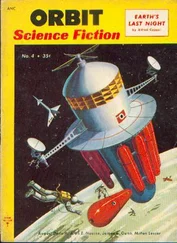“For the past half-hour I have been discussing this with the staff at Camp B-G; they tell me you had a long conversation with Steiner shortly before he left the camp. At the inquest our police will want to know what indications if any Steiner gave of a depressed or morbidly introspective mood, what he said that might have given you the opportunity to dissuade him or, barring that, compel him to undergo therapy. I take it the man said nothing that would alert you to his intentions.”
“Absolutely nothing,” Dr. Glaub said.
“Then if I were you I wouldn’t worry,” Touvim said. “Merely be prepared to give the clinical background of the man . . . discuss possible motives which might have led him to take his life. You understand.”
“Thank you, Mr. Touvim,” Dr. Glaub said weakly. “I suppose it is possible he was depressed about his son, but I outlined a new therapy to him; we have very high hopes for it. However, he did seem cynical and shut in, he did not respond as I would have expected. But suicide!”
What if I lose the B-G assignment? Doctor Glaub was asking himself. I just can’t. Working there once a week added enough to his income so that he could imagine--although not attain--financial security. The B-G check at least made the goal plausible.
Didn’t it occur to that idiot Steiner what effect his death might have on others? Yes, it must have; he did it to get vengeance on us. Paying us back--but for what? For trying to heal his child?
This is a very serious matter, he realized. A suicide, so close on the heels of a doctor-patient interview. Thank God Mr. Touvim warned me. Even so, the newspapers will pick it up, and all those who want to see Camp B-G closed will benefit from this.
Having repaired the refrigeration equipment at McAuliff’s dairy ranch, Jack Bohlen returned to his ‘copter, put his tool box behind the seat, and contacted his employer, Mr. Yee.
“The school,” Mr. Yee said. “You must go there, Jack; I still have no one else to take that assignment.”
“O.K., Mr. Yee.” He started up the motor of the ‘copter, feeling resigned to it.
“A message from your wife, Jack.”
“Oh?” He was surprised; his employer frowned on wives of his employees phoning in, and Silvia knew that. Maybe something had happened to David. “Can you tell me what she said?” he asked.
Mr. Yee said, “Mrs. Bohlen asked our switchboard girl to inform you that a neighbor of yours, a Mr. Steiner, has taken his own life. Mrs. Bohlen is caring for the Steiner children, she wants you to know. She also asked if it was possible for you to come home tonight, but I told her that although we regretted it we could not spare you. You must stay available on call until the end of the week, Jack.”
Steiner dead, Jack said to himself. The poor ineffectual sap. Well, maybe he’s better off.
“Thank you, Mr. Yee,” he said into the microphone.
As the ‘copter lifted from the sparse grass of the pasture, Jack thought, This is going to affect all of us, and deeply. It was a strong and acute feeling, an intuition. I don’t believe I ever exchanged more than a dozen words with Steiner at any one time, and yet--there is something enormous about the dead. Death itself has such authority. A transformation as awesome as life itself, and so much harder for us to understand.
He turned the ‘copter in the direction of the UN headquarters on Mars, on his way to the great self-winding entity of their lives, the unique artificial organism which was their Public School, a place he feared more than any other in his experience away from Home.
Why was it that the Public School unnerved him? Scrutinizing it from above, he saw the duck-egg-shaped building, white against the dark, blurred surface of the planet, apparently dropped there in haste; it did not fit into its surroundings.
As he parked in the paved lot at the entrance he discovered that the tips of his fingers had whitened and lost feeling, a sign, familiar to him, that he was under tension. And yet this place did not bother David, who was picked up and flown here three days a week, along with other children of his achievement group. Evidently it was some factor in his own personal make-up; perhaps, because his knowledge of machines was so great, he could not accept the illusion of the school, could not play the game. For him, the artifacts of the school were neither inert nor alive; they were in some way both.
Soon he sat in a waiting room, his tool box beside him.
From a magazine rack he took a copy of Motor World , and heard, with his trained ears, a switch click. The school had noted his presence. It noted which magazine he selected, how long he sat reading, and what he next took. It measured him.
A door opened, and a middle-aged woman wearing a tweed suit, smiling at him, said, “You must be Mr. Yee’s repairman.”
“Yes,” he said, standing.
“So glad to see you.” She beckoned him to follow her. “There’s been so much fuss about this one Teacher, but it is at the output stage.” Striding down a corridor, she held a door open for him as he caught up. “The Angry Janitor,” she said, pointing.
He recognized it from his son’s description.
“It broke down suddenly,” the woman was saying in his ear. “See? Right in the middle of its cycle--it had gone down the street and shouted and then it was just about to wave its fist.”
“Doesn’t the master circuit know--“
“I am the master circuit,” the middle-aged woman said, smiling at him cheerfully, her steel-rimmed glasses bright with the sparkle in her eyes.
“Of course,” he said, chagrined.
“We think it might be this,” the woman--or rather this peripatetic extension of the school--said, holding out a folded paper.
Unwadding it, he found a diagrammed congeries of selfregulating feedback valves.
“This is an authority figure, isn’t it?” he said. “Teaches the child to respect property. Very righteous type, as the Teachers go.”
“Yes,” the woman said.
Manually, he reset the Angry Janitor and restarted it. After clicking for a few moments, it turned red in the face, raised its arm and shouted, “You boys keep out of here, you understand?” Watching the whiskery jowls tremble with indignation, the mouth open and shut, Jack Bohlen could imagine the powerful effect it would have on a child. His own reaction was one of dislike. However, this construct was the essence of the successful teaching machine; it did a good job, in conjunction with two dozen other constructs placed, like booths in an amusement park, here and there along the corridors which made up the school. He could see the next teaching machine, just around the corner; several children stood respectfully in front of it as it delivered its harangue.
“. . . And then I thought,” it was telling them in an affable, informal voice, “my gosh--what is it we folks can learn from an experience like that? Do any of you know? You, Sally.”
A small girl’s voice: “Um, well, maybe we can learn that there is some good in everybody, no matter how bad they act.”
“What do you say, Victor?” the teaching machine bumbled on. “Let’s hear from Victor Plank.”
A boy stammered, “I’d say about what Sally said, that most people are really good underneath if you take the trouble to really look. Is that right, Mr. Whitlock?”
So Jack was overhearing the Whitlock Teaching Machine. His son had spoken of it many times; it was a favorite of his. As he got out his tools, Jack listened to it. The Whitlock was an elderly, white-haired gentleman, with a regional accent, perhaps that of Kansas. . . . He was kindly, and he let others express themselves; he was a permissive variety of teaching machine, with none of the gruffness and authoritarian manner of the Angry Janitor; he was, in fact, as near as Jack could tell, a combination of Socrates and Dwight D. Eisenhower.
Читать дальше









